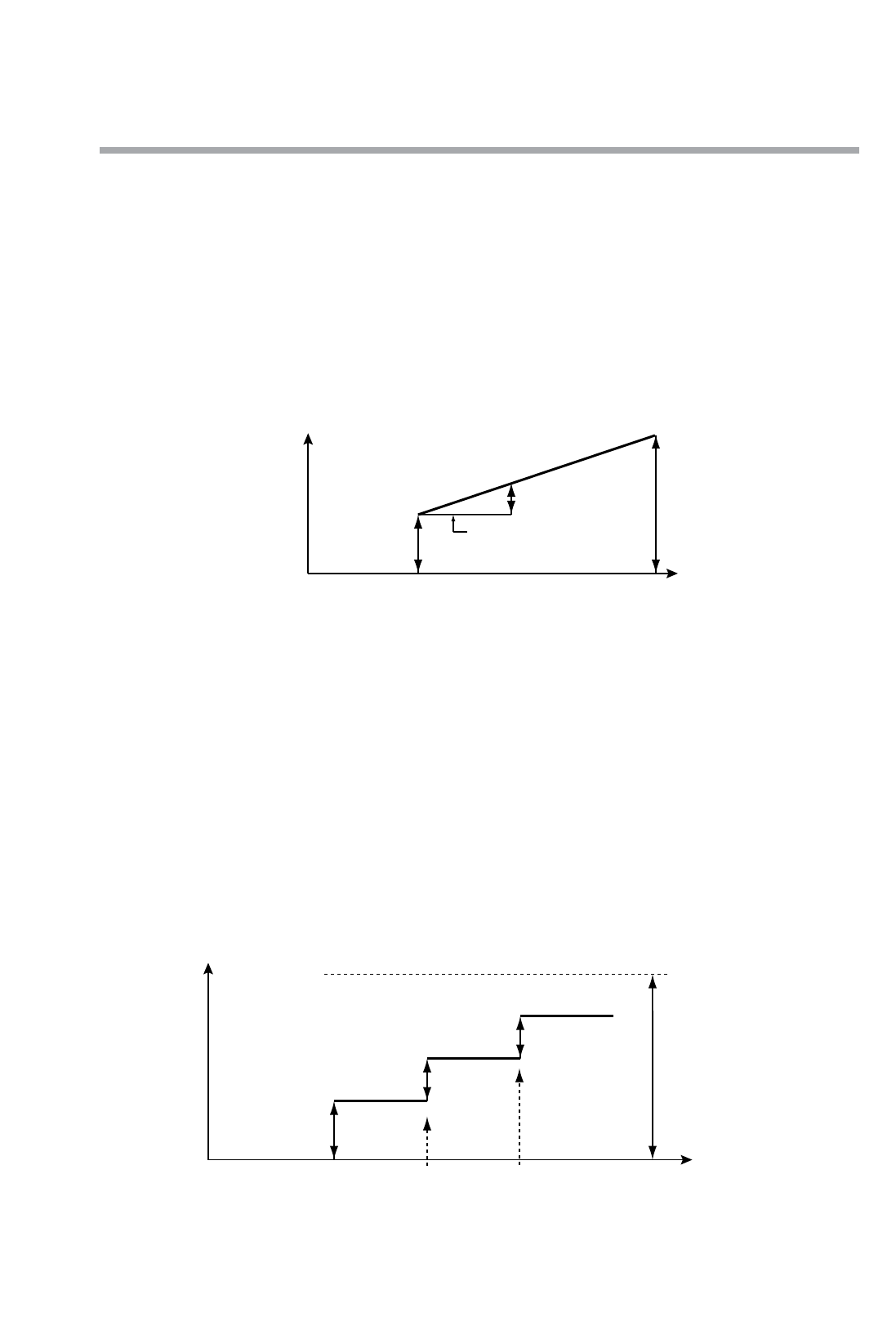
5-3
● RAMP-T system (
θ
setting)
In the RAMP-T system, a segment is set using SP and ramp
θ
(theta).
SP setting : within the upper and lower SP limiter range
θ
setting : 1 to 10000 (SPU/hour, SPU/min, SPU/sec)
(Time units are selected using the C62 setup data setting.)
SP is a point on the elapsed time axis in the current segment which is an extended
straight line, the ramp set value of the current segment when the SP set value in
the previous segment is the start point.
The end point is the point where this line reaches the SP setpoint of the current
segment. Note that the RAMP-T system cannot be used in the first segment.
SP calculation: SP =
θ
set value × segment elapsed time + previous segment SP.
● RAMP-E system (∆ SP setting)
In the RAMP-E system, segments are set using SP and ∆ SP (digital SP) for each
external switch input pulse.
SP setting : within the upper and lower SP limiter range
∆ SP setting: 1 to 10000 SPU
The start point is the SP set value in the previous segment.
SP is a value resulting from adding a multiple of the external switch input count to
the SP set value when the SP in the previous segment is the start point.
The segment ends when this SP reaches the SP setting in the current segment and
the current segment SP is more than the previous segment SP or when current
segment SP is less than the previous segment SP.
SP calculation: when current segment SP is more than the previous segment SP,
SP = ∆ SP set value × external switch input count + the previous segment SP.
When current segment SP is less than the previous segment SP,
SP = – (∆ SP set value × exernal switch input count) + the previous segment SP.
Chapter 5. FUNCTIONS
SP setting of
current segment
SP of previous
segment
Unit time
(Set unit time using setup data
C62
.)
setting
SP
Time
θ
Current segment SP setting
SP of previous
segment
∆ SP setting
∆ SP setting
External switch input (1)
(Set external switch input using one of setups C71 to C74
. )
SP
Time
(2)


















